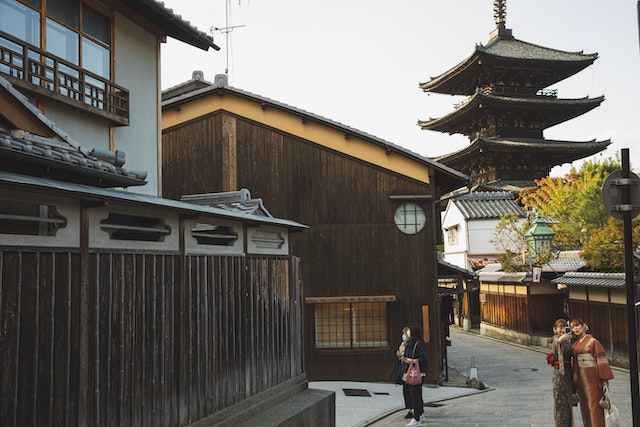Comments
- No comments found

A panel in Japan's health ministry has approved the country's first abortion pill, marking a significant milestone for reproductive rights in the country.
The MeFeego Pack, an abortion pill manufactured by British pharmaceutical Linepharma, combines mifepristone and misoprostol, which are included in the World Health Organization's Essential Medicines List.
Japan's male-dominated society has been slow to grant women the reproductive rights that many other developed countries take for granted. According to the Centre for Reproductive Rights, an international organisation, Japan is one of 11 countries — and the only one of the Group of Seven largest economies — that require women to obtain their spouse's consent before having an abortion, with very few exceptions. In practise, advocates say, the requirement frequently applies to unmarried women as well, leading to rare and tragic instances of women abandoning their babies in public places to die — an issue that the Jikei Hospital baby hatch is intended to address.
To date, only surgical abortion is available in Japan through two methods: the curettage method and the evacuation method. The World Health Organization has called for curettage to be replaced by the evacuation method or medication like abortion pills.

The MeFeego Pack can be used within nine weeks of pregnancy and was found to be safe and effective for pregnant people. The approval of abortion pills in Japan is a positive step for several reasons. Indeed, it provides women with a safe and effective alternative to surgical abortions, which were previously the only option available in Japan. The medication consists of two types of pills, and can be used within nine weeks of pregnancy, according to Japanese public broadcaster NHK. In a clinical trial in Japan, 93% of participants had a complete abortion within 24 hours, NHK reported.
This move brings Japan in line with other countries that have already made abortion medication widely available, such as France and the United States. The World Health Organization has included mifepristone and misoprostol, which are the main components of the MeFeego Pack, in its Essential Medicines List, describing them as safe and effective for pregnant people.
The approval of abortion pills is a significant step forward for reproductive rights in Japan. Activists have been pushing for years for the approval of the pills, and their success in this endeavor is a testament to their persistence and dedication. This move may also lead to greater sex education and awareness about contraceptive methods, as noted by Kanako Inaba, an obstetrician and gynecologist.
It is important to note that Japan's existing abortion laws still require spousal consent and limit access to abortion for reasons beyond bodily or economic harm or pregnancy resulting from rape. Therefore, while the approval of abortion pills is a positive step, there is still a long road ahead in terms of protecting women's rights in Japan.
Japanese activists have been pushing for years for approval of abortion pills, and the decision was celebrated by medical experts online. However, some have pointed to the long road ahead, calling for greater protection for women. Japan's controversial abortion laws require spousal consent, which activists argue denies women the right to make decisions about their own body. Under existing laws, women can only receive an abortion if a pregnancy "may significantly damage the person's physical health due to bodily or economic reasons" or if they became pregnant due to rape.
Protecting women's rights is crucial for promoting gender equality and ensuring that women have the same opportunities as men in all areas of life. Women's rights include the right to bodily autonomy and reproductive choice, the right to equal pay for equal work, the right to education and healthcare, the right to freedom from discrimination and violence, and more.
In the context of Japan's approval of abortion pills, protecting women's rights means ensuring that women have access to safe and legal reproductive healthcare without facing stigma, discrimination, or barriers to access. Japan's controversial abortion laws, which require spousal consent and restrict access to abortion except in cases of rape or where the woman's physical or economic health is at risk, deny women the right to make decisions about their own bodies.
Protecting women's rights also means addressing broader societal issues that affect women's well-being, such as gender-based violence, unequal pay and opportunities in the workplace, and inadequate access to education and healthcare. By promoting women's rights, we can create a more just and equitable society where everyone has the opportunity to thrive regardless of their gender.

With the availability of medication abortion, Japanese women will have more options and greater control over their reproductive health decisions. It's crucial to continue advocating for the protection of women's rights in Japan, including the right to make their own decisions about their bodies and access safe and legal abortion services. This decision will allow more options for women to safely and effectively terminate pregnancies within the first nine weeks. It also marks a step towards destigmatizing abortion and recognizing it as a legitimate healthcare option for women. It is important to continue advocating for reproductive rights and access to safe and legal abortion, as well as working towards removing any remaining barriers and restrictions that limit women's autonomy over their own bodies.
Riddhi Doshi trains and coaches corporate leaders, educators and parents on issues of mental health and behavior. She is an internationally certified Parenting & Behaviour Coach. In past 15+ years she has conducted 2540+ open workshops, delivered 87000+ hours of talks, 53000+ hours of counseling sessions covering 59000+ students and 62,000+ women from various fields. Parenting sessions conducted by Riddhi are housefull and recent;y she completed her 366th Parenting session. She has been a speaker and advisor at various institutions and organizations including IIM, Ahmedabad, Rotary Club, Tata Power, Larson & Toubro and The Time of India. She holds an MBA in HRD, LLM and numerous other professional certifications from prestigious international institutions including University of Cambridge, BSY University, London, City & Guilds, London, Tata Institute of Social Sciences and NMIMS, Mumbai. She has been awarded with “National Award for Cultural Activities by AVANTIKA- Delhi”, “Excellence in Wellness”, “Young Entrepreneurs Award”, “Self Made Diva Award” among various others. With a mission to “make corporate leaders, educators and parents empowered and more aware about mental health & wellness”, Riddhi regularly gives interviews on leading media platforms. She loves to interact with corporate leaders, educators and parents to discuss about women issues, child psychology and parenting challenges.
Leave your comments
Post comment as a guest